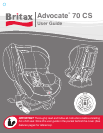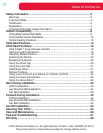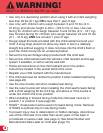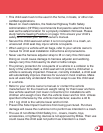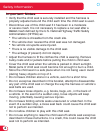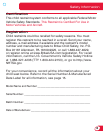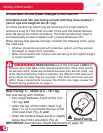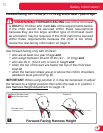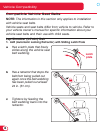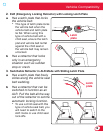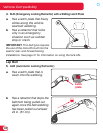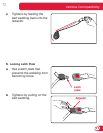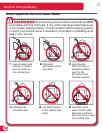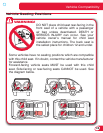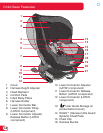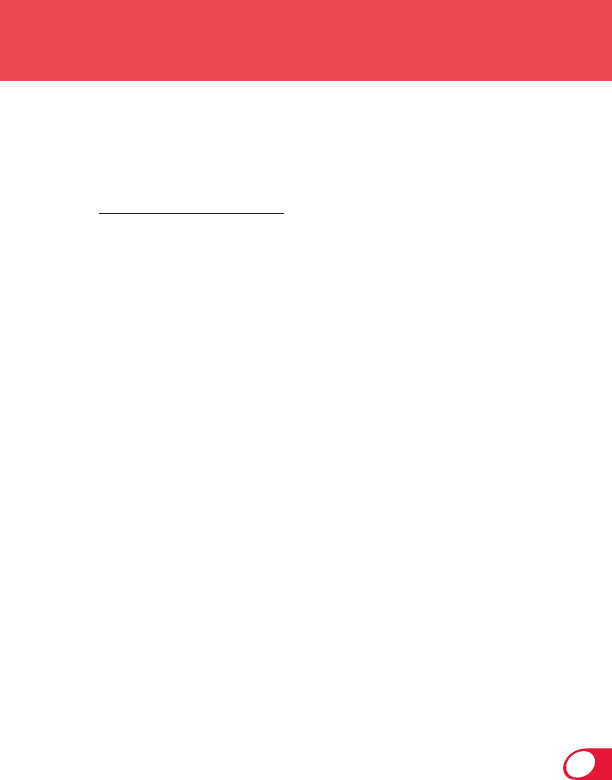
3
Section Title
• This child seat must not be used in the home, in boats, or other non-
certified applications.
• Based on crash statistics, the National Highway Traffic Safety
Administration (NHTSA) recommends that parents select the back
seat as the safest location for a properly installed child seat. Please
study Vehicle Seating Positions on page 13 to ensure your child’s
safety and consult your vehicle owner’s manual.
• Secure this child seat even when it is not occupied. In a crash, an
unsecured child seat may injure vehicle occupants.
• When using in a vehicle with air bags, refer to your vehicle owner’s
manual for child seat installation instructions and precautions.
• Never use the harness adjuster strap to lift or carry this child seat.
Doing so could cause damage to harness adjuster and webbing.
Always carry this child seat by its shell or tether straps.
• The primary protection for occupants of a vehicle in a collision is the
body of the vehicle itself; a child seat will not protect a child when a
vehicle is seriously impacted. However, correctly installed, a child seat
will substantially improve chances for survival in most crashes. Make
sure all users fully understand the correct ways to use this child seat
in a vehicle.
• Refer to your vehicle owner’s manual or contact the vehicle
manufacturer for the maximum weight rating for their lower anchors.
Use vehicle seat belt (not lower connectors) for installations with
children who weigh more than the vehicle lower anchor limit. Unless
specified otherwise by the vehicle manufacturer, assume a 40 lb
(18.1 kg) child is the vehicle lower anchor limit.
• Prevent the Side Impact Cushions from being punctured. Puncture
damage will cause the cushions not to perform as intended in a crash.
• The use of non-Britax Child Safety, Inc., covers, inserts, toys,
accessories, or tightening devices is not approved by Britax. Their use
could cause this child seat not perform as intended in a crash.



